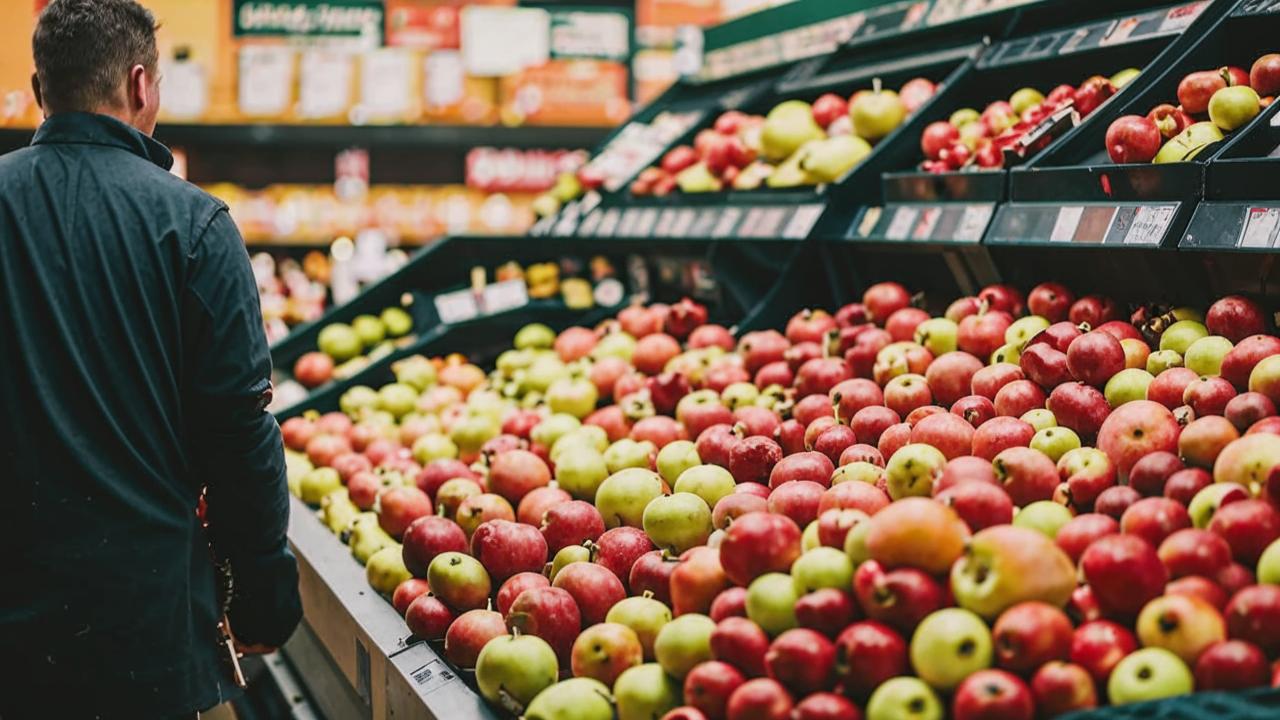Fructarianism is a term that hides a lot more meaning behind it than a simple nutritional strategy. If you ask a fruitarian what was the starting point to begin his journey in this direction, he is very likely to tell you about the whole philosophy and ideology of life behind his decision. However, there is still a lot of controversy surrounding fructarianism. On the one hand, giving up most foods, including unhealthy ones, leads to a full body cleanse. On the other hand, some studies have shown that fruity-eating participants have been found to have serious nutritional deficiencies.
In order to understand how people dare to limit their diet to fresh fruits and what improvements in the body and possible problems lead to fruitarianism, we talked to blogger, vegan Anastasia Samosudova. Nastya has been a fruitarian for four months and came to this lifestyle consciously, having previously researched her body for about two and a half years. Now she decided to share her productive yet challenging experience with “Championship”.
From weight gain to fruitarianism
It all started in 2015, when it was time to enter university and move to Moscow. Due to the unaccustomed pace of life and stress, Nastya soon gained ten kilograms.
Naturally, at some point I started losing weight and trying different diets: Dukan, protein diets… To lose weight, you need proteins – that was the only information I had. Then my health took a hit. I realize that it was because I was choosing my diet and calories incorrectly. I ate catastrophically little: the limit was 1000-1200 kcal a day. And so for three months.
Thanks to a grueling diet, the girl managed to lose even more than she originally added. But it left an imprint on her health: her menstrual cycle was disturbed, her skin problems increased, and her depressive mood began to prevail. That’s why Nastya began to study literature that would help her not to lose weight, but to choose an optimal nutrition system without harming her health. The book that pushed the student to the idea of veganism was “The Chinese Study”. Colin Campbell, a professor of food biochemistry at Cornell University, and his son Thomas, a physician by profession, worked on the publication of the work.
Nastia’s first experience of vegan living was mixed. She lasted three months. During this time, improvements in her general condition became noticeable: health complaints disappeared, facial skin problems went away and the strength to easily get up in the morning without an alarm clock appeared.
“All of this was invigorating and sustaining for me. But then, as time passed and the effects settled in, I started allowing myself to eat things that didn’t fit into a vegan diet. That’s how I switched to veganism. You have to be sure to distinguish that veganism is more about ethical points: against killing animals for any purpose and exploiting them. Back then, I was probably more of a vegetarian who just doesn’t eat meat, dairy, or eggs. It wasn’t until later that I started getting into the ideology of veganism after watching the documentary Earthlings. It touches on topics such as the dairy and meat industries and animal abuse. I began to realize that the world I live in is far from perfect. And if you want to make a difference in it, you have to start with yourself.”
The next step in her experiments with nutrition was raw eating, which involves the consumption of thermally unprocessed foods. For some time Nastya considered this diet ideal for herself, until she learned about fructarianism in a great flow of information.
What do fructorians eat?
Fruitarianism means that a person can eat only fruits: fresh and not processed in any way – they can only be peeled or cut. Despite the confusing name, the diet of a fruitarian includes some products that are recognized as vegetables in cooking. For example, a tomato or eggplant.
My diet included absolutely all fruits, and I tried a lot of things I had avoided before. New tastes opened up for me, especially since fructarianism cleanses the receptors a lot. For example, I never liked pears, but now they became for me like some kind of dessert, a cake. As you can see, the associations with traditional food still remain. For example, I associate persimmons with chocolate. I used to buy chocolate persimmons and I really felt this flavor, although many people do not feel it.
In general, when you cleanse your body in this way, all tastes begin to be perceived completely differently. For example, you taste one apple, and it can be radically different from another, although the variety is the same.
By the way, the girl did not feel hungry, although fruit is a low-calorie food. According to the rules of fructarianism, fruits should be consumed in relatively small portions, but often enough: every two or three hours. Nastya smilingly admits that sometimes she could eat a whole, medium-sized melon. Mostly, however, she followed an intuitive approach: she ate only when she felt hungry.
What’s the motivation?
Naturally, without motivation, it would have been difficult for Nastya to maintain such a decision. That’s why she followed foreign bloggers. This, in addition, allowed her to learn more about the ideology itself, because there is much less literature about fructarianism than about vegetarianism. Among Russian-speaking bloggers, the girl was inspired not only by fruit-eaters, but also by vegans. She is still interested in news from Rita Nesterets, Maxim Listov and Alyona Larionova.
I’m inspired by people in general. Many people add to me on instagram, we correspond with pleasure. And among famous people, if you take Hollywood, you can find a lot of stars who adhere to a similar philosophy. On veganism, for example, Jared Leto, Miley Cyrus, Billy Eilish, Peter Dinklage. Arnold Schwarznegger is a vegan. They’re an example to me: people who basically have all the financial means chose to live this lifestyle.”
The benefits of fructarianism
For Nastia, fructorianism turned out to be a kind of panacea. After a complete transition to fruit-eating, the girl began to feel a sense of lightness and started to exercise. Also her digestion improved, her regime was restored, her metabolism improved, her skin cleared up, her legs and headaches stopped. However, this did not happen immediately, as the body needed time to eliminate toxins and toxins.
My whole internal state improved. I could get up at 5 am and not feel tired. Many times I noticed that many people sleep in the subway during the day. And I didn’t understand why they wanted to sleep. Then I remembered that I felt less awake after regular food than after fruit. Fruit is energy, and I felt it.
In addition, Nastya noticed that she stopped getting sick. And if during her school days she went on sick leave two or three times a month, and at university – once, now the girl could not remember when she had a cold for the last time.
What are the disadvantages of fruit-eating?
According to a study by Klaus Leitzmann, conducted by the University of Gießen in Germany in 1996-1998, most people who refused to eat meat, dairy products and thermally processed food, experience complications. For example, one-third of the women surveyed under the age of 45 suffered from amenorrhea (lack of menstruation). Iron deficiency anemia was also found in 45% of men and 15% of women, and all participants were deficient in calcium, iron, magnesium, iodine, zinc, vitamins E, D and B12.

However, our interviewee assures us that she did not feel any health problems while adhering to fructarianism. She did not feel the lack of necessary elements and never took vitamins and food supplements. Nastya believes that her body received from live food exactly as much substances as it needed and as much as dead food would not give.
One of the tangible difficulties was adapting to society. Fascinated by the new philosophy of life, the girl persistently tried to convey the truth to others.
When I switched to fruit-eating, I started telling everyone left and right that they should eat only fruit. Everyone looked at me with their fingers twiddling at their temples. Now I realize that I scared people away with my assertiveness, persistence and unhealthy fanaticism. This ideology was my life, and I thought it was the only way to live right. Now I realize that you can’t do that: everyone still has their own views and their own truth.”
If you are a fruitarian, it is not in Russia
The main condition of fruitarianism is to consume good, fresh fruit. Unripe fruits not only will not be tasty, but in some cases will lead to poor health. Therefore, a significant disadvantage for Nastya in leading such a lifestyle was the scanty variety of quality products on domestic shelves.

To be a fruitarian, you need to have all the conditions. That is, living in the backwoods of Mother Russia, where the winter frost is -40 and the summer is so warm that you have to put on a down jacket, it is almost impossible to realize this. Quality fruits will not appear here. They can be unripe, unpalatable in most cases. When you eat them, you feel discomfort.
Now I live in Syktyvkar, in the north of the country. Here you can only get fruit at Magnit or Pyatyorochka. In Moscow it is easier, there are many more opportunities there. Of course, I am speaking only of my experience. The Russian markets do not have quite the same products. It seems to me that to be a fruitarian in Russia, you need to have either a lot of money for quality fruit, or enough time to look for it”.
Turning Point and Eating Disorder
When giving up previously familiar foods, many people tend to experience a kind of withdrawal – an acute desire to try something that for certain reasons is now excluded from their daily diet. Nastya noted that she had no such feelings, as the transition to fruit-eating was gradual, and on the contrary, she was happy with her decision. But one day the stability broke.
I broke when I went to India. The local flavors, the smells of Indian food… I was so eager to try everything. I decided not to limit myself and, of course, I had a blast. When I came back to Moscow, I resumed my old eating system, but it became more difficult to stick to it. I felt a decline: it was as if I had betrayed my philosophy and views, although, of course, this was not the case. Looking back, I realize I shouldn’t have blamed myself for it, but I did at the time.
I lost my way. For example, I could go a week on fructarianism and then eat buns and cereal again. I started having an eating disorder because I was clearly feeling guilt. I ate and didn’t enjoy it because I blamed myself for doing something wrong. I thought: “Nastya, you know you should do it differently!”. It’s a very difficult aspect related to the inner state.”
Returning to veganism
After Nastya got rid of her eating disorder, she decided to return to veganism, as she had all the opportunities and desire to follow such a lifestyle. The girl’s diet is still dominated by natural foods – fruits, which she still loves very much, vegetables, fresh juices – and no refined products, including oil. The girl tries to cook food with the help of baking, avoiding frying in a frying pan. Now she does not blame herself for the foods she eats or for adding salt to dishes, and can afford to give in to her desires without reproach.
Still, the most important achievement in the journey is not a clearly organized diet, but the achieved ability to listen to your body and its desires.
I used to have a “must” attitude. Within the framework of ethics, of course, I remain a vegan. But now I clearly realize that I don’t need to forbid myself anything. When you allow yourself everything, but at the same time you realize your desires, you will not want to eat unnecessary products. This is something you have to realize and understand.
Right now, I am comfortable with veganism. And I will be on this diet until I want something else. Like going back to pure fruits again. Again, I don’t want to stick to any concepts. If I really feel like drinking a glass of milk today, I’ll do it. Because you have to learn to listen to your body. Yoga, meditation, walking help me to do that. When you hear and feel yourself, it becomes easier to understand what you really want and to prioritize. Including nutrition.






